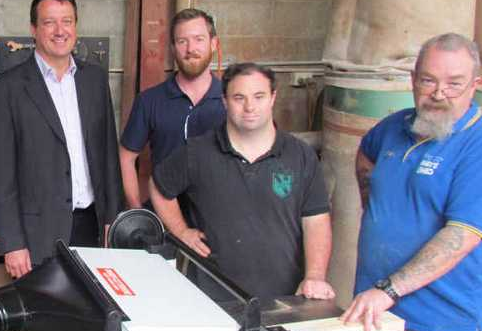Occupational therapists have an important role in developing mentoring programs with community-based organisations. One project, in which Men’s Shed volunteers mentored younger men with an intellectual disability, harnessed the principles of occupational wellbeing to work with a disadvantaged group to develop increased opportunities for work related skills, routines and increased social confidence and belonging.
Professor Angus Buchanan, Head of School at Curtin University’s School of Occupational Therapy, said that the lifelong disadvantage experienced by young Australian adults with intellectual disability is often associated with a lack of positive role models, limited choice and opportunities.
“These young people experience multiple lifelong disadvantages in education, employment and social participation,” Professor Buchanan said. “Men’s Sheds are community spaces where typically older retired men share in social participation and meaningful activities, and it occurred to my team that they may be used to build community support networks to help counter disadvantage for adults with ID.”
“Our project investigated the impact of an occupational therapy community-based intervention involving training Men’s Shed community volunteers to mentor and support 16 young (aged 17-24) unemployed males with ID to increase their social participation and work skills.
“Mentees were individually paired with an older male mentor where they worked together on a range of projects, including woodwork, metal work and gardening. The intervention was half a day, same time each week over a 6-month duration. The mentor and mentee were provided 1:1 occupational therapy support that was faded after 6-weeks of the intervention.
“Mentees and care givers described how the program developed mentee skill competence and self-confidence, increasing opportunities to socialise and be ‘one of the guys’ while engaging in pleasurable work-based activities,” Professor Buchanan said.

